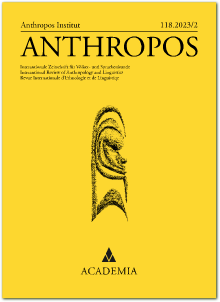Faheemuddin: Shibli Nu’mani. The Creation of Muslim Institutions at the Turn of the Century in India,
Abstract
Muslim reaction to Western education in India divided the country into two, a few welcoming it by opening a Western-based educational institute whereas others rejected it by founding a Muslim seminary. However, there was a middle way that was offered by the late nineteenth and early twentieth century education reformer Shibli Nu’mani. By analysing Shibli’s speeches, articles, and books, this article argues that Shibli offered a way out of the dichotomy of West and East. He argued for a change in the curricula of religious education and offered a contextualized solution for education, depending upon where one is placed. Hence, he went on to establish an English school for village children, a religious seminary for those who wanted to pursue reformed religious education, a school for the correction of society for the rural people to understand religion, and a Writers’ Academy to produce academics. It goes on to show that there existed a diversity in the perception among Muslims on the question of education.
[India, Aligarh, madrasa curriculum, Nadwat ul Ulama, Sir Sayyid Ahmed Khan, Shibli Nu’mani, Darul Uloom Deoband]
Get this article
